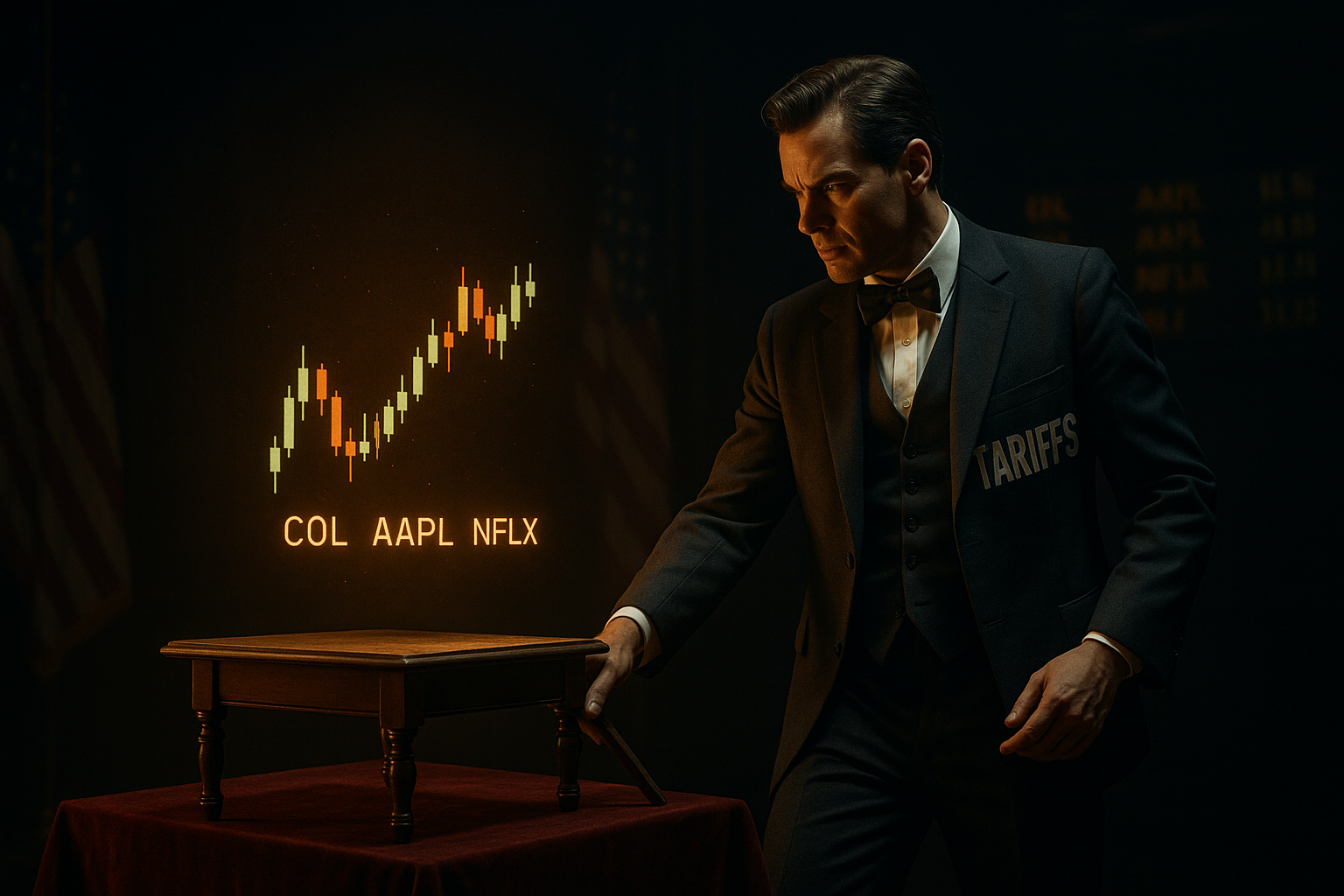The great tariff acceleration isn't coming—it's already here, folks. And boy, is it a doozy.
Remember all those Economist articles warning about Trump's China tariffs? Turns out they weren't just academic hand-wringing. The numbers rolling in paint a picture that's exactly as disruptive as the doom-and-gloom crowd predicted: tariff rates have exploded to an eye-watering 245% through April, we've watched the economy contract by 0.3% of GDP (not a rounding error, mind you), and manufacturing? Well, manufacturing activity has practically fallen off a cliff.
I've been tracking economic indicators for years, and this isn't your garden-variety market correction. It's more like watching someone yank the tablecloth out from under a fully set dinner table.
Look at what's happening in shipping alone. Vessel traffic from China has plummeted 44%—nearly half!—while suddenly everybody's scrambling for Vietnamese routes, driving prices up a whopping 43%. That's not what economists politely call "gradual supply chain adjustment." That's economic whiplash that'll give you a neck brace.
The market response has been something to behold.
It reminds me of those nature documentaries where a massive school of fish suddenly changes direction when a shark appears. According to surveys crossing my desk, an astonishing 89% of businesses have simply thrown up their hands and canceled Chinese orders outright. No hedging, no waiting—just "nope, we're out."
Companies are so desperate for bonded warehouse space (where they can temporarily dodge the tariffs) that they're paying premiums of 60%. Even Apple—a corporate behemoth that typically changes direction with all the nimbleness of an aircraft carrier—is shifting iPhone production to India, swallowing 5-8% higher manufacturing costs in the process.
There's something happening here that follows what the econ wonks call "adjustment friction."
Markets don't gracefully waltz to new equilibriums—they stumble, trip, and occasionally face-plant their way there, often overshooting wildly before finding balance. Historical patterns (and I've charted plenty) suggest we're going to see maximum negative impact—roughly -0.9 percentage points of GDP growth—materializing over the next twelve months.
It's like watching a slow-motion car crash where the physics are so precise we can calculate the exact moment when the fender crumples.
But here's where things get truly fascinating... and it's not even about economics.
The political dimension makes this whole situation decidedly weirder. David Autor's research (if you haven't read it, you should) reveals something that flips conventional political wisdom on its head: despite measurable economic harm from previous tariff rounds, the affected regions actually showed increased Republican support afterward.
This isn't some statistical blip or margin-of-error nonsense; it's a robust finding that economists have dubbed "expressive views of politics."
What's that mean in plain English? Voters don't always vote with their wallets; sometimes they vote to express values or tribal identities—even at personal cost. It's like paying extra for a product that signals your political tribe, except the premium is literally your own economic well-being.
I've covered three presidential elections, and I'm still surprised by how often this pattern emerges.
What particularly intrigues me (and should worry traditional economists) is how this challenges the standard assumption that humans act as rational utility maximizers. In consumption, maybe. In voting? Not so much. People seemingly absorb economic pain quite willingly if it feels like "their team" is fighting for something they believe in.
Whether you find that admirable or alarming... well, that probably depends on which jersey you're wearing.
As we head into May, we're essentially watching an economic experiment unfold in real time. Supply chains built painstakingly over decades are being frantically rewired in mere months. The costs? Real and measurable. But the political feedback loop suggests this won't necessarily translate into the electoral consequences that simple economic models would predict.
So buckle up, dear readers. The economic data for May should be... educational.
And painful. And possibly vindicating—depending entirely on who you ask.




